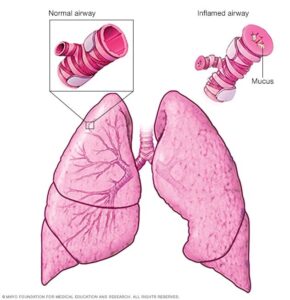Boost your Immune Health with Beta Immunity
Dr. Claire Arcidiacono, ND
Today I want to talk about a supplement that is great for those times when you’re fighting off a cold or other upper respiratory infection. That supplement is Beta Immunity! Beta Immunity is a combination of Beta 1, 3 Glucan and Black Elderberry. Now don’t get Beta Immunity confused with a different product with a similar name, Immunity Hx! For more information on Immunity Hx please check out my blog on that particular product! But let’s go back to Beta Immunity!
Let’s start with Beta 1, 3 Glucan or Beta Glucan for short. If you look at the supplement facts on Beta Immunity you will notice the name BetaVia™ which is a powerful clinically studied algae extract. This is the source of the Beta Glucan. But what is Beta Glucan? Beta glucans are a type of fiber that comes from places such as the cell wall of bacteria, fungi, yeast and algae. While I want to focus on the immune benefits I also want to remind everyone that Beta glucans have been found in studies to help with heart disease and heart health. (1) Studies have suggested that Beta glucan can increase immunity and result in fewer upper respiratory tract infections in children and teens. (2) Studies have found that Beta Glucans can help to strengthen the immune system by affecting several of the different types of immune cells. (3) Additional studies have found that Beta Glucan is also antimicrobial and can help fight off pathogens. (4) Overall studies agree that Beta Glucan is an amazing supplement for helping to boost our immune system when we are sick or have been exposed to a pathogen or “bad guy”. (5)
Let’s move on to elderberry! I know what you are thinking, elderberry sounds like a yummy berry. Let me go out and pick some to put in my smoothie! But wait – STOP! Raw elderberry can cause nausea, vomiting and even diarrhea! So it’s best to stick with prepared forms such as jams and supplements. (6) Studies have found that those suffering from upper respiratory infections such as a cold would find the cold to be shortened on average by 2 days when using elderberry. Elderberry has also been found in studies to help decrease the severity of symptoms experienced. (7) Further studies have found that elderberry is a safe option for helping with upper respiratory infections such as colds or the flu. Studies have also found that elderberry is very helpful when you have an upper respiratory infection such as a cold, however the studies are inconclusive as to how helpful it is in using it to prevent an infection. (8) In my clinical experience elderberry is a great tool when you feel as though you might be getting sick. Other studies have found that elderberry helps stop a virus form replicating as well as helps our immune system fight the virus. (9)One fun fact if you will is that while elderly can and does boost our immune system it does not appear to produce an overproduction of cytokines or “cytokine storm” which creates a situation where the body starts attacking itself. (8)
As I’ve said Beta Immunity is a great product as is my other favorite Immunity Hx. But when to use which product? How do you know which one to use? In my clinical experience I find that Immunity Hx is what you want to use to help ward off an infection. It can be used long term to help keep our immune system ready. Elderberry, in my experience is very helpful once you become sick and need help fighting off those pathogens or bad guys. It is also very helpful if you are exposed to a pathogen. So for example, you go to a party and find out that oh no Bob has a cold and he sneezed on you! Well that’s the time to add Beta Immunity in the mix. If you are still not sure which one is best for you remember that Invite Nutritionist are always there for you!
Our next blog will be about the common cold!
Sources:
- https://www.webmd.com/vitamins/ai/ingredientmono-1041/beta-glucans
- https://www.ncbi.nlm.nih.gov/pmc/articles/PMC7816268/
- https://www.ncbi.nlm.nih.gov/pmc/articles/PMC10302218/
- https://www.sciencedirect.com/science/article/abs/pii/S0162310998000599
- https://pubmed.ncbi.nlm.nih.gov/17895634/
- https://www.webmd.com/diet/elderberry-health-benefits
- https://www.ncbi.nlm.nih.gov/pmc/articles/PMC4848651/
- https://www.ncbi.nlm.nih.gov/pmc/articles/PMC8026097/
- https://www.sciencedaily.com/releases/2019/04/190423133644.htm








